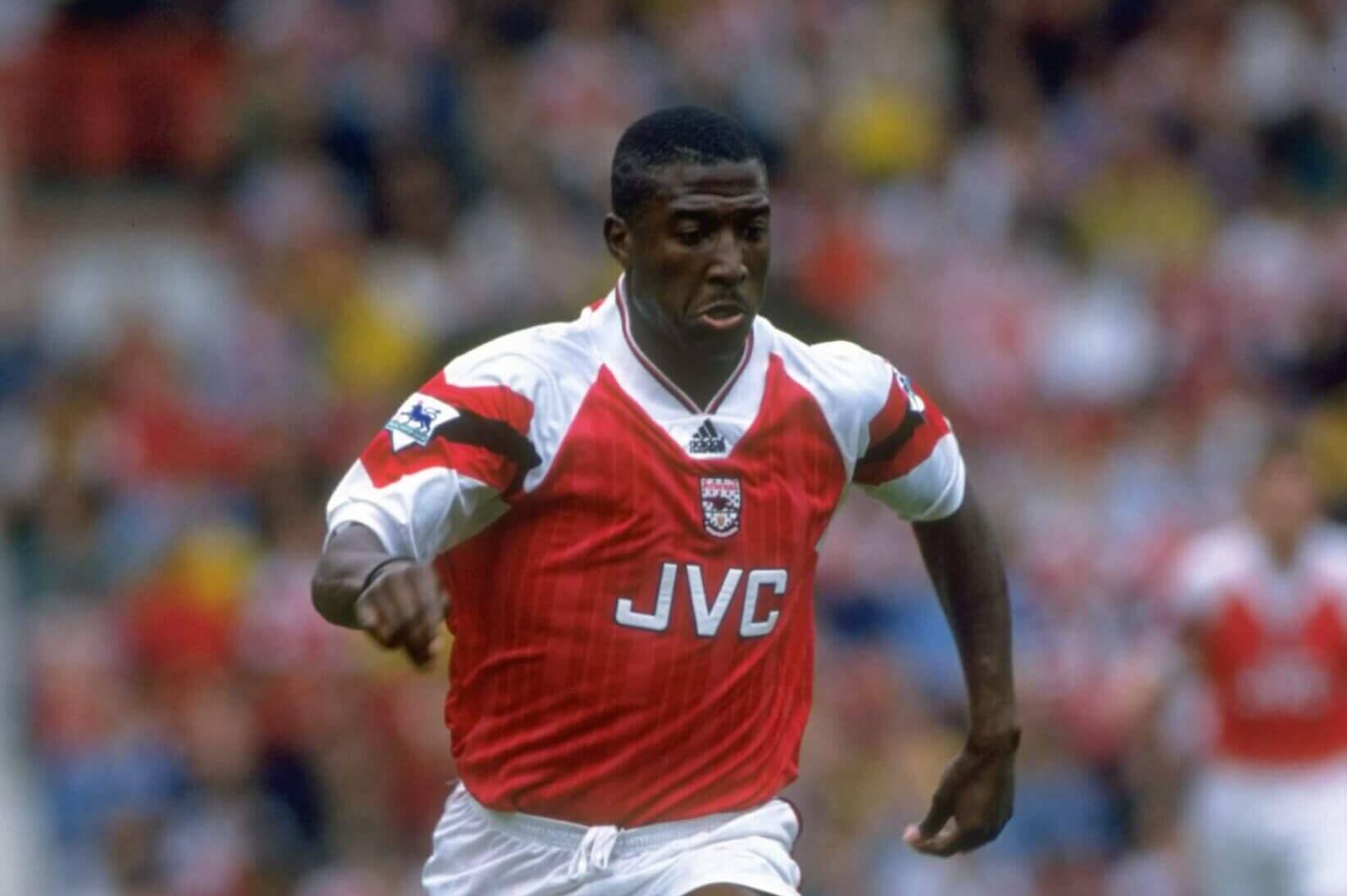Super Kevin Campbell, as he was known in song, in nickname, and in personality, absolutely merited the prefix.
There is a reason he was loved, and held in such esteem, in every dressing room and at every club where he spent time. Few in football, or in life, manage to embrace being positive quite like Kev. Every day, every person he encountered, was a chance to make a connection, to spread a good message, to shine some light. If you were lucky enough to be in his company, the warmth always stayed with you.
Campbell, who has died at the age of 54, first came to prominence at Arsenal, where his exploits in the youth team generated plenty of excitement. He scored a remarkable 59 goals in a single season and spearheaded the team to victory in the FA Youth Cup at 18, pushing his case for a first-team debut.

Kevin Campbell’s muscular style made him a key player for Arsenal (Clive Brunskill/Allsport)
He was a powerhouse striker and also carried with him the homespun determination that underpinned an extraordinary generation of young players from south London at the club. Campbell was the latest in a line from Paul Davis, David Rocastle, Michael Thomas and, before long, Ian Wright, who together symbolised a very special and important bond.
Campbell was a boyhood Arsenal supporter. He remembered being taken to his first match at Highbury in May 1977. It wasn’t a classic, Arsenal drew 1-1 with Middlesbrough, but there was a memorable atmosphere — the punchline Campbell always threw was that Tottenham Hotspur got relegated that same day. “It was amazing! Everyone had their little radios going and it was a party,” he recalled.
His passion for the club was infectious. But more than that, Campbell could play, and was always geared up to compete. He was a handful, too. Even before he was a fixture in the first team Campbell’s nickname was ‘Rambo’. Because of his muscular frame, he was identified by manager George Graham as a particularly useful member of the squad from a young age.
When Steve Bould, a hard-edged centre-back, arrived from Stoke City, Graham explained that he would have to play against Campbell in training for a while to get used to what was expected. Bould was confused. Arsenal’s main forwards at the time were Alan Smith and Paul Merson. “Who is Campbell?” Bould asked. The reply said it all: “You’ll find out.”

Kevin Campbell was close with Paul Merson (Mark Leech/Offside via Getty Images)
One of his favourite moments as an Arsenal youngster was being invited to join the travelling party when Arsenal went to Anfield on the last day of the season in 1989 to win the league title. Rocastle picked him up in Brixton outside the town hall at 5am and they made their way to Highbury and helped the kit man to load up the coach. He was next to the dugout celebrating one of the most famous goals in the club’s history, and by the time he and Rocky returned at dawn the next day, they sat on the steps of Highbury’s Marble Halls with a fan and talked about the best day of their footballing lives.
Campbell was a goalscorer who had speed and strength, making him so tough to knock off the ball. He profited from an excellent loan spell with Leyton Orient, helping them to promotion, and a period with Leicester City, before returning to Arsenal to make his mark on the team he loved.
Campbell was integral to the team that won the 1990-91 league title, and went on to collect domestic and European trophies in 1993 and 1994. He faced a challenge with typical positive determination when Wright joined and quickly became the favoured striker. Campbell analysed the situation and realised that he needed to adapt. He and Wright were more similar as dynamic strikers, so he set about reassessing his game to be able to complement him, rather than be an understudy.

Kevin Campbell helped Arsenal won the league in 1991 (Ben Radford/Allsport/Getty Images)
“I didn’t go knocking on George’s door,” he recalled. “I got on the training ground and asked Pat Rice, Stewart Houston and Geordie Armstrong (Graham’s assistants and coaches) to help me to become a better player. They obliged, no problem. George realised I improved. That’s how this game goes.”
‘Super Kev’ was loved and respected by all at Arsenal. When it was time for him to move on, he went with warmest wishes. From a distance, all his friends at Highbury were proud of his impact, most notably at Nottingham Forest and Everton, clubs who also fell for his mixture of attacking clout, dependable character and upbeat charm.
The beauty of Campbell was that this enormous bull of a player had the hugest heart. Positivity was his way. He loved to feel it, speak it, spread it.
That became even more of a touchstone after his playing career ended, as he made it his business to communicate with fans of his old teams on a very genuine level. He never carried any airs or graces, he never came across as superior just because he had been a player. He loved to talk football, life and positive vibes with anyone and everyone.
That legacy will live on with everyone he encountered.
(Top photo: Shaun Botterill/Allsport)







